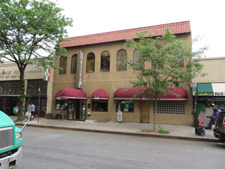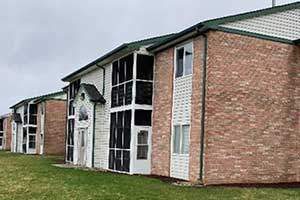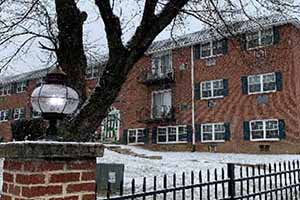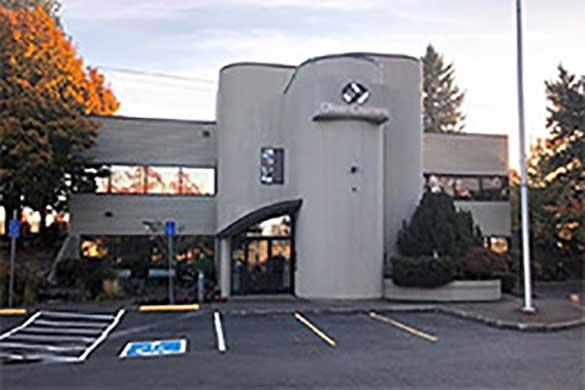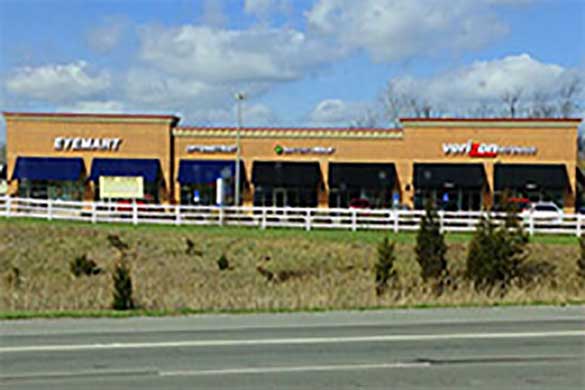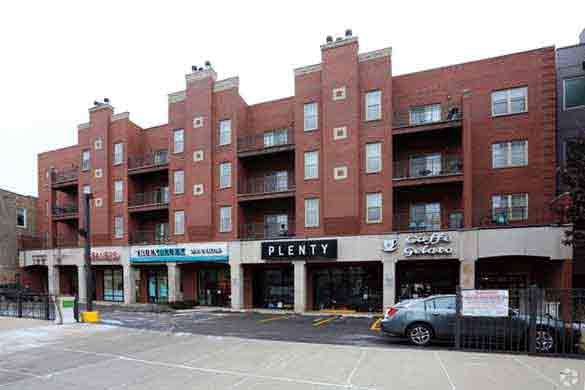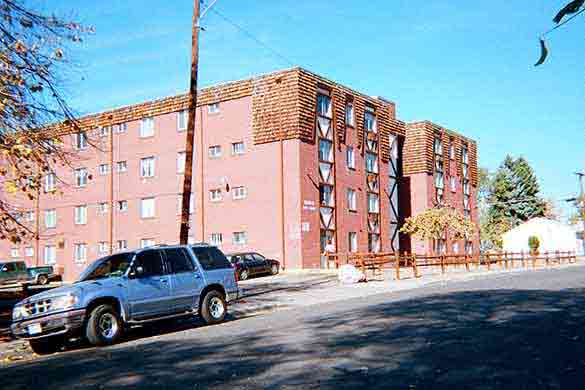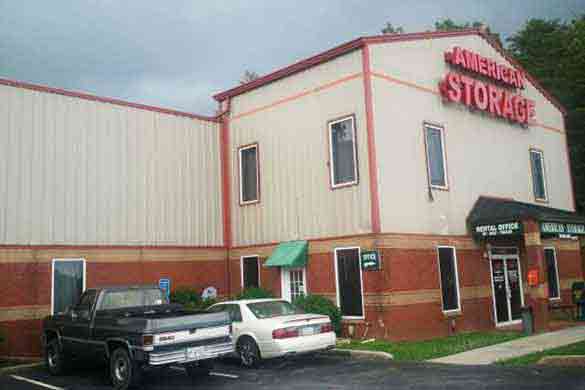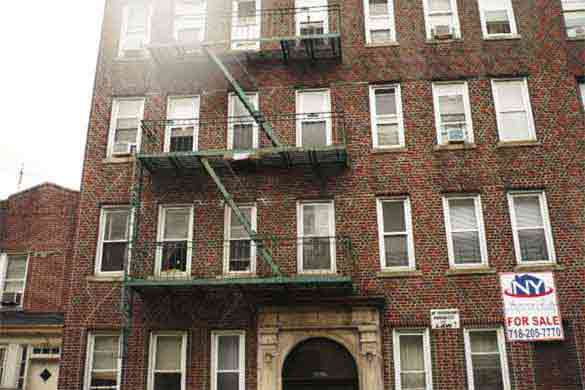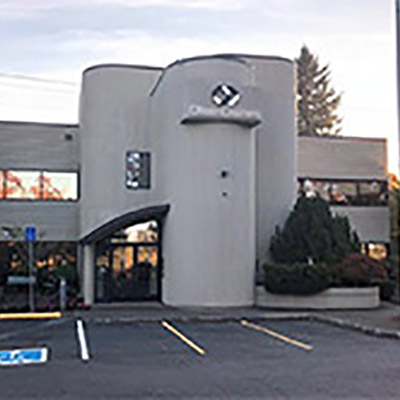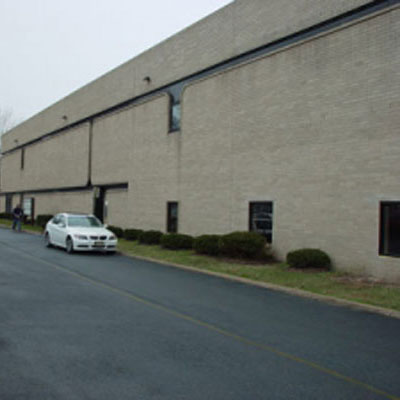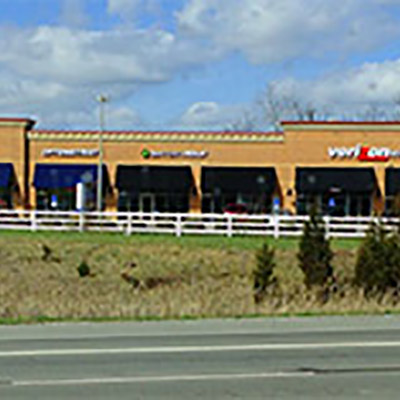New York Commercial Mortgage Rates
At Select Commercial, we've built a solid reputation in the New York commercial mortgage sector, offering tailored solutions for a variety of NY commercial properties across the state, with loans starting at $1,500,000. As experts in commercial real estate financing, we also understand the increasing demand for New York apartment loans. Whether you're interested in multifamily units or exploring other commercial property options, our commercial mortgage rates page gives a detailed look at the best rates available across the 48 states. Discover what’s going on with New York commercial mortgage rates in early 2025?.
New York Commercial Mortgage Rates - updated 02/21/26
| Loans Over $1,500,000 | Get Free Quote | ||
|---|---|---|---|
| Loan Product | Rate* | LTV | |
| Multifamily | 5.18% | Up to 80% | |
| Commercial Real Estate Loan | 6.23% | Up to 75% | |
| Single Tenant Lease | 5.83% | Up to 75% | |
| Business Real Estate Loan | 6.03% | Up to 90% | |
New York Commercial Mortgage Benefits
NY commercial mortgage rates start as low as 5.18% (as of February 21st, 2026)
• A commercial mortgage broker with over 30 years of lending experience
• No upfront application or processing fees
• Simplified application process
• Up to 80% LTV on multi family , 75% on commercial (90% with SBA)
• Terms and amortizations up to 30 years
• Loans for purchase and refinance, including cash-out
• 24 hour written pre-approvals with no cost and no obligation
Our Reviews
Some commercial mortgage lenders lock rates at application, some lenders lock rates at commitment, while others lock rates prior to closing. We are currently in the midst of an increasing rate environment. Rates quoted at application may increase dramatically during the loan application progress, if not locked. It is very important to understand your lender’s procedure upfront to avoid potential confusion.
In order for a commercial mortgage lender to issue a firm loan approval, they will want to understand the financial condition of the borrower, as well as the fundamentals of the property. The borrower will be expected to supply his personal financial statement showing total net worth and liquidity. He will also need to provide a schedule of real estate owned demonstrating experience managing similar properties. Lastly, the borrower’s credit scores will needed. For the subject property, lenders will look closely at the current rent roll, operating statements showing income and expenses, copies of all leases, and other pertinent property information.
Commercial mortgage rates are determined by many different factors, including property type, location of the property, loan-to-value ratio, debt service coverage ratio, debt yield, borrower’s net worth, liquidity, credit rating and level of experience. Commercial mortgage lenders look at all of these factors to determine the riskiness of the loan before setting rates. Loans with the lowest risk profile will get the best commercial mortgage rates. As the potential risk increases, commercial mortgage rates usually increase.
Commercial mortgage loans are viewed differently by lenders than residential loans. Home loan lenders look strictly at the borrower’s income and credit in order to qualify. Commercial mortgage lenders look at the subject property’s rent roll, operating statements, and other factors to determine the cash flow or net income potential. Very strong (low risk) commercial mortgage loans might be priced lower than home loans, while weaker performing properties (higher risk) might be priced higher.
Most commercial mortgage loans today are fixed for 5, 7, or 10 years and come with a 25-30 year amortization schedule. Loans can be recourse (personal guarantee) or non-recourse (no personal guarantee). Commercial mortgage loans typically carry prepayment penalties, whereas residential home loans usually do not. Specific terms will be determined by your lender’s underwriting team after your application is reviewed.
Commercial mortgage lenders typically lend up to 75-80% on an apartment purchase (down payment of 20-25% necessary). On other types of commercial property, commercial mortgage lenders will typically lend up to 70-75% (down payment of 25-30% necessary). An exception is for owner occupied business real estate (such as a business owner buying his own property). Owner/users may qualify for up to 90% LTV financing.
Select Commercial is a leading commercial real estate loan provider. We have excellent commercial real estate loan products and options available for owners and purchasers of commercial real estate. While we lend across the entire continental United States, we are able to give our best commercial mortgage rates and loan programs to certain areas that we feel are strong markets. New York is one of the states that we consider to be a premium market and we actively look to originate good quality loans here for our clients. As an experienced commercial mortgage professional, with over 30 years of lending experience, we have many sources of capital to choose from when placing a commercial mortgage request with a lender. Having many lenders to choose from gives us advantages over any one individual source. Finding the lender that fits the needs of each client is what we do best. In the end, you get the best rate and terms available. If you are looking to obtain a commercial real estate loan, don't hesitate to contact us. There are many reasons why our customers like doing business with Select Commercial. We have a simplified application process and we do not charge any upfront application or processing fees. We typically offer 24-hour pre-approvals with no-cost and no-obligation. Our long term fixed rates are excellent, and we look to close within 45 days of application. Our staff is professional and knowledgeable, and we look forward to working with you on your next commercial mortgage transaction.
Commercial Real Estate Recent Closings
2024 NY Office Commercial Mortgage - Market Overview
In June 2023, the Comptroller's Monthly Spotlight explored the outlook of New York City's office market, forecasting a range of potential outcomes for City tax revenue and the broader economy. Revisiting the market this month, we assess changes within the office space sector, including shifts influenced by NY Office Commercial Mortgage and NY Office Loan trends, which have become crucial tools for property financing in this dynamic landscape.
Market Trajectory and Shifting Demand:
Starting with the general market trajectory, we observe ongoing demand shifts, especially evident in the “flight to quality” phenomenon, where tenants are gravitating toward high-end properties. Owners are increasingly utilizing NY Office Loans to finance upgrades to meet tenant expectations, as these loans provide essential support in a competitive environment. Additionally, NY Office Commercial Mortgages play a key role for investors seeking to capitalize on stable, high-value office properties, where occupancy rates remain relatively robust despite overall market fluctuations.
Post-Pandemic Impact on Demand:
The pandemic's impact has reshaped the demand for office space, leading to rising vacancy rates and downward pressures on rent and market values, most notably in Class B and C buildings. Yet, the severe “doom-loop” scenario anticipated last year appears less likely as demand for prime office spaces holds strong, with NY Office Commercial Mortgages proving essential for stability in this segment.
Conversions and Incentives:
Conversions of commercial spaces into residential units are gaining traction, with only 600 units completed but over 2,000 more approved and another 1,000 in development. Developers and property owners increasingly rely on NY Office Loans to fund these conversions, especially given the technical and financial demands of such projects. In this report, we also examine the NYC Economic Development Corporation's “M-CORE” tax incentive program for renovating office spaces, presenting case studies of projects where the Comptroller's office supported or opposed subsidies.
Valuation and Financing for Tax Purposes:
Lastly, we address the City's approach to office building valuations for tax purposes, examining how these values align with recent market data and highlighting the role of NY Office Commercial Mortgage and NY Office Loan solutions in managing property tax burdens and supporting investment returns.
Overview of NYC's Office Market:
New York City's office sector spans nearly 730 million square feet, far surpassing any other North American city, with a significant concentration in Manhattan, home to 82% of this space, mainly in prime business areas south of 59th Street. New York City's office market ranks among the most expensive, comparable to San Francisco and San Jose, in both rental and sale values, making NY Office Commercial Mortgage financing a critical component for maintaining competitiveness.
Office spaces across New York City are diverse in quality and price. Manhattan's top-tier “trophy” properties, mainly representing Class A spaces, typically command rents of $100 per square foot, while Class B and C properties average $54 per square foot in Manhattan and $40 per square foot in other boroughs.
Recent Trends and Financial Strategies:
The office market is still adapting to the post-pandemic landscape, with Manhattan's office vacancy rate surging from just under 8% before the pandemic to over 16% by April 2024. While asking rents have fallen by about 8%, a relatively moderate decline, property owners are increasingly utilizing NY Office Loans to manage occupancy challenges and keep operations stable. NY Office Commercial Mortgages offer property owners and investors a critical option to finance acquisitions and maintain liquidity amid market shifts.
These trends mirror those observed in many major U.S. cities; however, vacancy rates remain notably lower in areas surrounding New York City, as businesses continue to shift operations away from dense urban centers.
Demand for Premium Space and Role of Financing:
The demand for higher-quality office spaces remains solid, despite overall market softness. With the citywide vacancy rate nearly doubling since early 2020, Class B and C properties face reduced demand, while higher-end 5-Star properties see stable occupancy and ongoing tenant interest. This “flight to quality” is supported by financing solutions, including NY Office Commercial Mortgages, which help property owners enhance their offerings to attract tenants in this upscale segment.
Office-to-Residential Conversions and Upgrades:
Conversions of lower-demand office spaces into residential units are gaining momentum, driven by NYC's housing needs. In these projects, NY Office Loans are essential to cover the costs associated with such complex conversions, which often involve significant structural alterations and loss of rentable office area. The Financial District has emerged as a central area for these conversions, with several projects recently approved. In response, the City has introduced tax incentives to encourage housing conversions, creating further opportunities for NY Office Loan usage in repositioning properties to address housing shortages.
The City has also proposed zoning amendments to facilitate more conversions, along with tax exemptions for mixed-income conversions that reserve affordable housing units. NY Office Commercial Mortgages and other financing options are crucial in making these conversions viable, particularly in areas where office values are still stable.
By leveraging financial tools like NY Office Commercial Mortgages and NY Office Loans, property owners and developers can adapt their investments to current market needs, securing long-term value and stability in New York City's evolving office landscape.
2024 NY Industrial Commercial Mortgage - Market Overview
As of November 2024, New York’s industrial real estate sector is experiencing notable growth, bolstered by evolving market dynamics and financing solutions such as NY Industrial Commercial Mortgages. These mortgages provide essential capital for businesses navigating acquisitions, development projects, and refinancing activities, all crucial for maintaining competitiveness in today’s market.
Market Performance and Trends:
In the third quarter of 2024, New York’s industrial market has shown resilience, with leasing activity improving significantly. The availability rate declined to 18.5%, with year-to-date leasing activity reaching 26.1 million square feet, a 24.7% increase over the same period last year. NY Industrial Commercial Mortgages have been instrumental for investors and developers capitalizing on Class A spaces, which accounted for nearly 80% of recent leasing activity, particularly in high-demand areas like Midtown.
Financing Landscape:
NY Industrial Commercial Mortgages are crucial in the current economic environment, with rates in New York starting at approximately 5.42% as of November 2, 2024. These competitive rates provide businesses the flexibility to secure industrial properties that support their growth strategies, despite fluctuations in the broader interest rate environment. Access to tailored NY Industrial Commercial Mortgages enables companies to thrive in the industrial sector.
Investment Opportunities in Industrial Hubs:
Investors are increasingly focused on acquiring and developing logistics facilities near key manufacturing areas, such as the Sunbelt and Rust Belt regions. This trend, supported by NY Industrial Commercial Mortgages, is fueled by a resurgence in manufacturing, with companies committing significant funds to new production facilities for electric vehicles, semiconductors, and other tech-driven products. These strategic investments are expected to reshape the industrial real estate landscape and provide lucrative opportunities for stakeholders in New York.
Outlook for the Industrial Real Estate Sector:
Looking ahead, the U.S. industrial real estate market is anticipated to stabilize in 2024, with net absorption levels comparable to 2023 and rent growth moderating to approximately 8%. Construction deliveries are expected to slow by midyear, which may lead to a temporary rise in vacancy rates toward the long-term average of 5% before declining again in late 2024. This balanced market outlook presents ongoing opportunities for both investors and occupiers, particularly those leveraging NY Industrial Commercial Mortgages.
The industrial real estate sector in New York continues to offer a dynamic investment environment in 2024. Businesses and investors utilizing NY Industrial Commercial Mortgages can capitalize on robust leasing activity, favorable financing options, and strategic growth opportunities. For those interested in securing a foothold in New York’s industrial market, understanding current trends and financing solutions is essential. Learn more about NY Industrial Commercial Mortgages and get a free quote to kickstart your investment journey here.
2024 NY Retail Commercial Mortgage - Market Overview
As of November 2024, New York's retail real estate sector is experiencing a dynamic resurgence, driven by evolving consumer behaviors and strategic financing solutions like NY Retail Commercial Mortgages. These financial instruments are pivotal for businesses aiming to secure prime retail locations and adapt to the changing market landscape.
Market Performance and Trends:
In the third quarter of 2024, Manhattan's retail corridors reported an average asking rent of $716 per square foot, reflecting an 8% year-over-year increase. The availability rate decreased to 15.1%, the lowest in nearly a decade, indicating strong demand for retail spaces. Notably, SoHo's availability rate dropped to 11.3%, the lowest since 2013, underscoring its appeal to retailers.
Financing Landscape:
NY Retail Commercial Mortgages are essential in this competitive environment, offering businesses the capital needed to acquire or lease premium retail spaces. With interest rates stabilizing, these mortgages provide favorable terms, enabling retailers to invest confidently in New York's prime locations.
Investment Opportunities in Retail Hubs:
Areas like Lower Fifth Avenue are experiencing a resurgence, with new leases and expansions contributing to a low availability rate of 5% and asking rents reaching up to $400 per square foot. This trend highlights the potential for lucrative investments in emerging retail hubs.
Outlook for the Retail Real Estate Sector:
Looking ahead, New York's retail market is poised for continued growth, with leasing activities expected to remain robust. The strategic use of NY Retail Commercial Mortgages will be instrumental for businesses seeking to capitalize on this momentum and secure a foothold in the city's vibrant retail landscape.
For those interested in exploring opportunities in New York's retail real estate market, understanding the latest trends and financing options is crucial. Learn more about NY Retail Commercial Mortgages and obtain a free quote to embark on your investment journey here.
2024 NY Hotel Commercial Mortgage - Market Overview
As of November 2024, New York City's hotel industry is experiencing a dynamic phase, influenced by evolving tourism patterns and economic factors. For investors and operators, understanding the current landscape is crucial, and NY hotel commercial mortgages play a pivotal role in facilitating strategic investments.
Market Performance and Trends:
In 2023, New York City's hotel market demonstrated resilience, with Revenue Per Available Room (RevPAR) surpassing 2019 levels by 15.2%, leading the top 25 U.S. markets. This growth was driven by a surge in group, corporate, and international demand. ([hotelbusiness.com](https://hotelbusiness.com/jll-2023-nyc-revpar-up-15-2-vs-2019/))
However, challenges persist. As of October 2024, occupancy rates remain approximately 4% below pre-pandemic levels, and RevPAR is about 20% lower compared to 2019 figures.
Impact of External Factors:
The city's migrant crisis has significantly affected hotel availability. Over 120 hotels have been converted into migrant shelters, removing approximately 16,000 rooms from the market. This reduction in supply has contributed to average nightly rates exceeding $300.
Additionally, New York City's crackdown on short-term rentals, including platforms like Airbnb, has decreased available listings from 21,500 to about 3,280. This regulatory change has further tightened the lodging market, influencing hotel pricing and availability.
Financing Landscape:
Securing a NY hotel commercial mortgage is essential for investors aiming to navigate this complex environment. As of November 2024, commercial mortgage rates in New York start at approximately 5.42%. These rates provide opportunities for financing acquisitions, renovations, and refinancing existing properties.
Investment Opportunities:
Despite current challenges, the long-term outlook for New York's hotel industry remains positive. The city's enduring appeal as a global destination suggests sustained demand for hospitality services. Investors leveraging NY hotel commercial mortgages can position themselves to capitalize on future growth as the market stabilizes.
In conclusion, New York's hotel sector in 2024 presents a mix of opportunities and challenges. Staying informed about market trends and financing options is crucial for success. For those interested in exploring NY hotel commercial mortgage solutions, obtaining a free quote can be a valuable first step in making informed investment decisions. Get a free quote here.
Commercial Real Estate Loan Types
Apartment Loans
Apartment loans, often called multifamily loans, have consistently been a significant part of our business. We specialize in obtaining apartment loans and mixed-use mortgages.1031 Exchange Financing
1031 exchange financing helps investors complete tax-deferred exchanges when selling one investment property and purchasing another.Bowling Alley Mortgage Loan
Bowling alley mortgage loans finance the acquisition, refinance, or improvement of bowling alley properties.Bridge Commercial Mortgage Loan
Bridge commercial mortgage loans provide short-term financing until a property is stabilized or ready for permanent financing.Campground Mortgage Loan
Campground mortgage loans offer financing for RV parks and campgrounds, including acquisitions, refinances, and upgrades.Car Wash Loan
Car wash loans finance self-service, in-bay automatic, and full-service car wash properties.CMBS Mortgage
CMBS mortgages provide long-term, fixed-rate CMBS financing for income-producing commercial properties.Dental Practice Loan
Dental practice loans offer funding to acquire, expand, or refinance a dental practice, with or without real estate.Gas Station Loan
Gas station loans finance the purchase or refinance of branded and unbranded gas stations and convenience stores.Hotel Mortgage
Hotel mortgages provide financing for flagged and independent hotels, including purchases, refinances, and renovations.Industrial Property Loans
Industrial property loans cover warehouses, manufacturing facilities, flex space, and distribution properties.Investment Property Loans
Investment property loans finance non-owner-occupied residential and commercial properties held for investment.Manufacturing Plant Mortgage Loan
Manufacturing plant mortgage loans provide funding to purchase or refinance manufacturing and production facilities.Marina Mortgage Loan
Marina mortgage loans offer financing for marinas, docks, and related waterfront operations.Medical Practice Acquisition
Medical practice acquisition loans provide funding to acquire an existing medical practice, including goodwill and equipment.Mobile Home Park Financing
Mobile home park financing offers loans for manufactured housing communities and mobile home parks.Motel Mortgage
Motel mortgages provide financing for the purchase or refinance of independent and franchised motels.NNN Lease Financing
NNN lease financing offers loans secured by single-tenant properties leased on triple-net terms.No Income Check Commercial Mortgage Loan
No income check commercial mortgage loans are asset-based programs that rely primarily on property cash flow and equity rather than traditional income documentation.Office Building Loans
Office building loans finance multi-tenant and single-tenant office buildings for acquisition or refinance.Restaurant Mortgage Loan
Restaurant mortgage loans provide financing for the purchase or refinance of restaurant and food service properties.Self Employed Commercial Mortgage
Self employed commercial mortgages offer flexible underwriting for self-employed borrowers who need alternative documentation options.Self Storage Financing
Self storage financing provides loans for self storage facilities, including acquisitions, refinances, and expansions.Special Use Loans
Special use loans provide customized financing for unique or non-standard commercial property types.Retail Building Loan
Retail building loans offer financing for shopping centers, strip malls, and stand-alone retail buildings.Underlying Co-Op Financing
Underlying co-op financing provides loans secured by the underlying mortgage of cooperative apartment buildings.Our company has over 30 years of experience in the commercial real estate market and offers multiple capital sources for these commercial real estate loans, including: national banks, regional and local banks, insurance companies, Wall Street conduit lenders, credit unions, agency lenders (such as Fannie Mae and Freddie Mac), and private lenders. Whether you are purchasing or refinancing, we have the right solutions available. We will entertain loan requests of all sizes, beginning at $1,500,000. Click here to get started with a free loan quote.
What areas of New York does Select Commercial provide financing?
Select Commercial provides commercial real estate loans throughout the state of New York including but not limited to the areas below.




